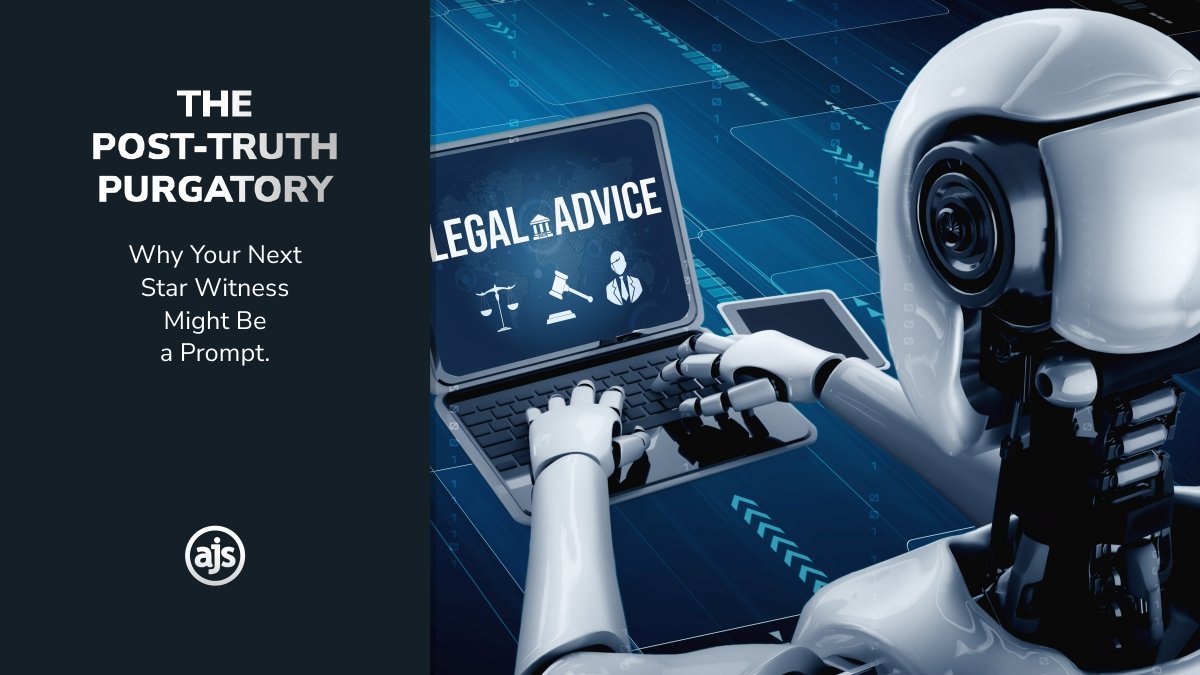
TAKING STOCK: Part II
It’s as good a time as any….
We ended last week’s article with acknowledging that hard times are hard. And 2021 has certainly been that – hard.
It has been filled with disruptions, upheavals and terrible disappointments. There’s no denying that. There has been a lot to take in. For all of us.
But we also said that because of the tough, hard times we have been forced to endure. We have been forced to find new innovative solutions to cope in ways which will foster continuous forward thinking and resilience. We have been forced to adapt to so many different challenges and set-backs, it’s made our heads spin. Sometimes to the extent that we do not know whether we are “Arthur or Martha” (most of the time).
But because we have had to adapt, because we have had to innovate in order to foster continuous forward thinking and technological development, we have experienced the type of success that can only be attributed to innovation, adaptation and resiliency resulting from the hard, tough times.
It’s a funny thing to comprehend – having to go through strife in order to succeed. But, butterflies do that all the time.
We ended last week’s article with the following quotes –
“If you look the right way, you can see that the whole world is a garden” ― Frances Hodgson Burnett, The Secret Garden.
“We can complain because rose bushes have thorns, or rejoice because thorns have roses” – Alphonse Karr, A Tour Round My Garden
And we stated that we should see the garden for what it is and take the time to smell the roses, thorns or not.
And this is where we want to start this week’s article.
By seeing the garden for what it is – a hard year filled with upheaval. But, still taking the time to smell the roses – sure, businesses, companies and law firms have had to endure, adapt and challenge themselves, but in doing so, have achieved amazing success.
And none more so than the legal profession.
Smelling the roses
In the 2021 Report on the State of the Legal Market by Thomson Reuters, the following was set out –
“In his best-selling book The Tipping Point, Malcolm Gladwell argues for a reframing of how we think about social change. Contrary to the popular assumption that social change happens slowly and steadily over a period of time, Gladwell argues – with a metaphor that is eerily appropriate for our present circumstances — that, in many cases, change happens more like an epidemic. As he puts it, “Ideas and products and messages and behaviors spread just like viruses do.” That means that, while the forces of change may build up slowly, it is often a single triggering event that causes the change to take hold, and that event can be of surprising origin.
Explaining in more detail, Gladwell notes that the process of change begins with “clear examples of contagious behavior” — i.e., with a build-up of ideas and activities that appear to be moving in a particular direction. Once the build-up reaches a certain level, the acceleration of these behaviors can be influenced by little changes that have big effects. And, at that point, change can happen very fast. “The name given to that one dramatic moment in an epidemic when everything can change all at once is the Tipping Point.
For the past decade (since the Great Recession), the market for legal services has been evolving toward a different delivery model. The evidence of that evolution has been visible in the changing role and expectations of clients, changes in the pricing of law firm services, growth of competition (including from non-traditional law firms), and changes in technology. Combined, these trends — or as Gladwell might describe them, these “clear examples of contagious behavior” — have been pushing the market toward making the delivery of legal services more efficient, more predictable, and more cost effective. And they have been driving a new market reality in which law firms are no longer solely in control of their own destinies.
While many firms have implemented significant changes in response to these market forces, unfortunately many others have not”.
We think the above is significant for a number of reasons. Most importantly, is the fact that contrary to popular belief, change does not happen slowly. Quite ironically, it happens like an epidemic. With a buildup of ideas and activities to the point where that build-up reaches such a critical point that the acceleration of the changes needed are influenced by small occurrences that have massive effects.
And while law firms have in recent years (not counting the pandemic) tried to embrace change and advancement, the stumbling block has really been the lawyers themselves, who have resisted change due to being comfortable with the status quo. “If it ain’t broke, why fix it?” seemingly being the motto.
But that was clearly a way of thinking that was not sustainable under normal circumstances. Let alone during a pandemic. Something needed to change and the legal profession, already on the precipice of this change, needed to take the plunge.
Taking the road less travelled
As we already know (and have said countless times) – the legal profession is slow to change.
But the onset of the pandemic exacerbated and accelerated the uptake in change and innovation and brought with it the adoption of both alternative solutions and technological trends at an unexpectedly high rate. And that has been surprising. Most of all to the lawyers who have been a part of this uptake in change and innovation.
Looking back now, it seems that lawyers were quite ready to step out (in their running shoes) on to the road less travelled. And were excited about where it would take them. And how quickly they could get there.
Enjoying the bumps in the road…
Everyone knows that age old adage – you cannot get rich in the good times, but you can get rich during the bad times – with a little foresight, ingenuity and definitely a willingness to adapt.
And adapt, law firms have.
According to the article Firms of the Year Results 2021 –
“judging by the scuttlebutt out there, nearly everyone in the profession was run off their feet in 2020 performing work ranging from M&A, Insolvency, Restructuring, and HR disputes to personnel rearrangements and advising on critical multi-million-dollar business deals.
Some of the important legal work was done in the office, but most of it had to be done at home due to varying levels of lockdowns that forced people’s daily routines to adapt to a “New Normal.” On top of the wider business disruption, the constraints of working from home added plenty of extra pressure and learning curves.
According to data from Citi Private Bank, demand for lawyer time fell only 1% in the first half of 2020, dropping by 4.2% in the second quarter – significantly lower than in 2019. But the lawyers who managed to stay busy had plenty of work to do”.
And it is clear that the law firms that have thrived, despite “all the thorns” are the ones that have moved away from the traditional law firm set-up, more readily accepting “NewLaw”, adopting legal technology to help them work remotely and embracing Alternative Legal Service Provider’s (ALSP’s) to get work done – creating an all-encompassing new era of law that has so much promise, its (almost) frightening.
NewLaw
Eric Chin, co-founder and president of alpha, the entrepreneurial networking club for more than 2000 Founders and CEOs, first coined the phrase “NewLaw” in 2013 when he defined it as –
“Any model, process, or tool that represents a significantly different approach to the creation or provision of legal services than what the legal profession traditionally has employed.”
Back in 2013, there was a lot of confusion over what the term NewLaw meant, with many law firms scared that this was a fad that would take away from the seriousness of the practice of law. Now, with some perspective, we can see what Eric meant by NewLaw (especially during the pandemic).
In an interview with Josef Legal in 2019, there were some key take aways that we want to emphasise about this concept of NewLaw from Eric himself–
“The seven most expensive words in the business of law and in the practice of law are: “We have always done it that way”.
There is the practice of law and then the business of law. Because the practice of law usually takes precedence over the business of law.
NewLaw is now mainstream. There isn’t anyone who hasn’t heard of alternative legal service providers or managed services.
A big moment was when AMP’s general counsel, Brian Salter, came to the market and said for law firms to stay on the AMP panel, they needed an arrangement with a legal process outsourcing company where the work is outsourced to the most cost-efficient provider”.
And what he has said is significant. Two points which made the biggest impact with us are – The seven most expensive words in law are “We have always done it that way” and (historically) the practice of law takes precedence over the business of law.
Why?
Because the start of the pandemic and the time that has followed has changed those two concepts entirely. Law firms have realised (and accepted) that by staying the same and not improving or bettering themselves with the adoption of legal tech, the use of ALSP’s and adoption of the business of law through the application of the concept of NewLaw, it was costing them clients. It was more expensive to remain the same than it was to change. And their old ways were no longer serving them.
The concept that has ultimately changed during the pandemic is not the practice of law – lawyers are still doing their thing. It is the business of law that has evolved. Lawyers have adopted new ways of how they run their business by using legal tech to allow them the flexibility to work from anywhere, to draft documents from anywhere and to be fully up to date with their legal matters from anywhere.
They have understood that in order to keep their current technologically savvy clients, they have to evolve to the same standard as they have. And by so doing, law firms have become more efficient, more affordable and therefore more profitable. They have remained busy during the worst part of the pandemic because they adapted and evolved.
NewLaw is no longer “new”, different or worrisome. It is just how the legal world is Now working where the business of it is at the forefront of innovation and where the practice of it has become inclusive and collaborative. And oh so exciting!
Speaking of alternative legal solutions
Law firms have sought to engage with ALSP’s in an effort to provide the best possible solution for their client and in so doing have ushered in a new age of law. One that is technologically advanced, efficient, collaborative and affordable. There is a sharing of knowledge across teams and the once alternative legal option is no longer that alternative.
In our article The Alternate Legal Solution, we said that ALSP’s are simply an option outside of the traditional, standard, “what we have come to expect” law firm models, where lawyers can be found working in senior roles alongside legal technologists, analysts and project managers. They are often seen as “niche companies”, specialising in providing high-demand legal services such as document review, contract management, legal research, litigation support, discovery and electronic discovery (“e-discovery”). ALSP’s have been hailed as reshaping the business of law, with technology as their guiding light.
In a survey by Thomson Reuters in February of 2021, the ALSP market was valued at almost $14bn at the end of 2019, an increase of about $3.2bn from the previous two years. Showing substantial growth in the market. In fact, 79% of law firms and 71% of in-house counsel now engage ALSP’s for legal work compared to 51% and 61% respectively in 2016.
One of the fastest-growing services where law firms are engaging ALSP’s is consulting on legal technology. As ALSP’s are considered to be agile early adopters and innovators for cutting-edge technologies such as artificial intelligence, block chain, predictive analytics and smart contracts, they are in the perfect position to utilise legal tech in a way that best serves their clients.
The result?
Through the incorporation of NewLaw into daily practice as well as the adoption of ALSP’s, a number of other types of legal service providers have come to the fore. In fact in an article titled Is 2021 the year we should we drop the “Alternative” from ALSPs? they confirm that –
“There are lots of firms that are doing things differently, for a variety of reasons, each exciting in its own right and all of them far removed from the law firms of old. There are Legal Design firms who are different because of the way they think about legal problems. There are firms who use technology to provide legal solutions. There are firms which are focusing on the people providing the service – humanising the law. Then there are firms who are providing holistic solutions that go beyond the legal.
These all sit alongside firms doing the work that Chambers drew out as “core” to the industry, as well as firms at the other end of the spectrum that are still emerging”.
And from this point of view it seems fairly clear that the experiences gained from 2020 and throughout 2021 will accelerate important changes in the way law firms operate and relate to their clients, lawyers, staff and their colleagues that are doing different things in different ways moving forward.
And it is obvious that law firms that take these changes seriously and respond to them proactively will undoubtedly emerge as the market leaders achieving great success (despite it all), again and again.
Other improvements we have noticed
Despite the hiccups we have all experienced, when we look back and take stock of the last year (always with a little bit of perspective), we notice that there have actually been quite a few improvements to the legal industry –
- There has been a much broader acceptance of the role of technology in the effective delivery of legal services to their clients. This has been as a result of having to adapt (at a rapid speed) to the radically changed market conditions caused by the pandemic. But this may very well create further openness to experimentation and acceptance of other forms of service delivery going forward – and the thought of that gives us tingles up the spine (in a really good way)!
- Most law firms have acknowledged that remote working can work. Indeed, the disruptions resulting from work-at-home situations were less serious than most law firms expected. Interestingly, in a survey undertaken by Acritas, “more than three-quarters (77%) of senior lawyers interviewed for the report said they want to retain elements of the virtual, remote working environment that they’ve gotten used to over the past seven months or so. More dramatically, 22% said they are likely to leave their firm if it didn’t want to accommodate the new way the lawyers want to work”. And coming from a profession which was all about “bums on seats” and billable hours, this is a huge step forward in the fight for a more balanced work life and home life.
- One of the massive improvements to the legal profession (following on from the above) has been the focus on issues of wellness, work-life balance, and the necessity of caring for their legal and administrative staff in terms of physical safety and mental health. This has been of critical importance in the support of the most important asset of any law firm – its people. Further to this, law firms have understood the need for creating and maintaining a strong firm culture through renewed emphasis on the firm as an intentional and supportive community for its lawyers and staff.
It just goes to show that (like we said at the very beginning) if you see the garden for what it is, and take time to stop and smell the roses, despite its thorns, you will be all the more better for it.
Our closing thoughts
For a law firm in 2021 to provide value, it must truly work differently, it must think differently and it must act differently to the way it did before the pandemic by embracing technology and collaborating with those who practice law differently to how they do.
It’s about showing what you are good at and what makes you special. The simple fact is this – you are all providing a myriad of different solutions for a wealth of different clients and that requires a new and fluid approach to how you go about providing your services – open to innovation, collaboration and out the box thinking. And those are all good things.
As you can see, by taking stock of the past year, we can review the achievements, giving us all a sense of who we are, where we have come from and where we are going to. It helps to keep our lives in perspective and makes us look forward to the future.
We leave you with this quote –
“Dwell on the beauty of life. Watch the stars, and see yourself running with them.” – Marcus Aurelius
Until next week friends – run with the stars because they are always within reach. If you just try.
Written by Alicia Koch on behalf of AJS
3 Comments
-
Pingback: Bye, Bye 2021! - AJS South Africa





Pingback: TAKING STOCK: Part III - AJS South Africa